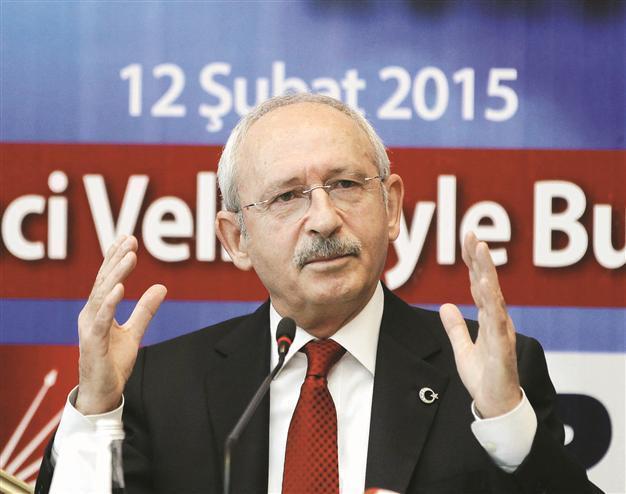Top Turkish court orders Prime Ministry to pay compensation to CHP leader
Nurettin Kurt ANKARA

AA Photo
Turkey’s highest administrative court has made a landmark ruling, convicting the Prime Ministry over the leaking of a report that included illegitimate records about the main opposition leader while ordering it to pay compensation.The 10th Chamber of the Council of State ruled that the Prime Ministry was at “serious fault” for claiming and leaking to press illegitimate records about main opposition Republican People’s Party (CHP) leader Kemal Kılıçdaroğlu. The Council of State consequently ordered the Prime Ministry to pay compensation to Kılıçdaroğlu.
In April 2008, Turkish daily Bugün published a report including some defamatory claims about Kılıçdaroğlu that were allegedly arranged by the West Study Group (BÇG).
The BÇG is a committee of military officials that is said to have monitored the government, keeping illegal records of private information on hundreds of thousands of people as part of the Feb. 28 process that eventually led to the notorious military intervention of Feb. 28, 1997, often described as a “post-modern coup.”
As Kılıçdaroğlu sued the newspaper for damages, a local civil court in Ankara issued a writ to the Prime Ministry asking whether the report cited in Bugün’s article existed while also asking the Prime Ministry to send a copy of the report if it existed. The Prime Ministry’s Directorate General for Security sent a copy of the classified report to the court.
Afterwards, Kılıçdaroğlu’s lawyer appealed to an administrative court and sued the Prime Ministry for damages worth 50,000 Turkish Liras, saying the Prime Ministry gravely violated the CHP head’s personal rights by leaking to the press a report which should have remained secret.
Eventually, the 10th Chamber of the Council of State made its ruling in November 2014 and notified the parties of this decision last week.
“As a natural result of the Republic of Turkey’s characteristic of being a state governed by the rule of law which is respectful of human rights, the administration is tasked with taking all kinds of measures in order not to have personal rights and freedoms, which are under assurance of the Constitution, harmed during the conduct of public services. The connection between the conducted public service with security and the existence of the state cannot justify overlooking fundamental rights and freedoms. A public service about security and existence of the state also has to be conducted within the rules of law,” the ruling said.
The Council of State is the Superior Court for administrative justice and, as such, is the Court of last instance. It reviews all rulings rendered by administrative courts, unless the laws specifically refer them to other judicial authorities. Similar to the Court of Appeals, the Council of State is also the court of first and final instance for specific cases as defined by law. It ensures the consistency of rulings among the administrative courts.
















